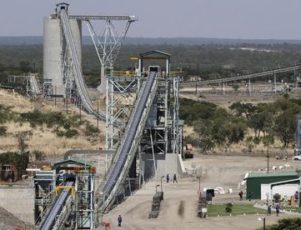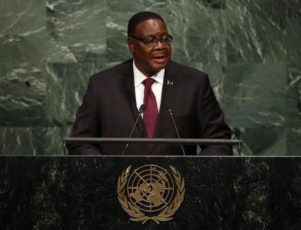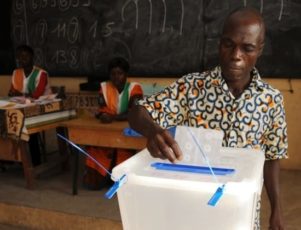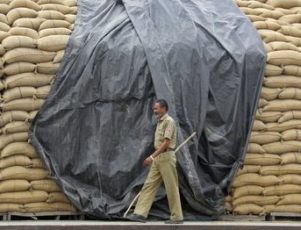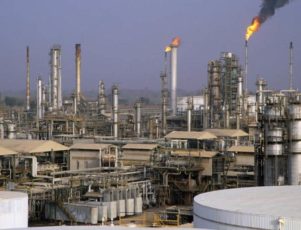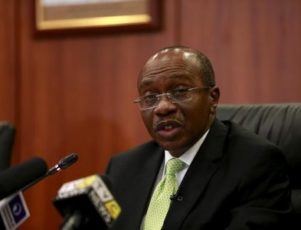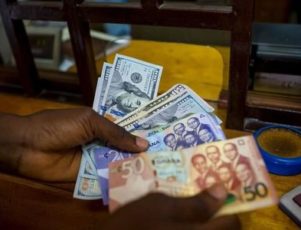JOHANNESBURG (Reuters) – With their economies floundering and currencies sinking, African states that have borrowed heavily in dollars may be slipping back into the debt trap – and ultimately default – only a decade after a far-reaching round of debt forgiveness.
Some are looking to issue more Eurobonds to refinance existing foreign currency loans, but with U.S. interest rates set to rise soon, the inevitably higher borrowing costs will do little to alleviate pressure on creaking state budgets.
Top of the list of ‘at risk’ countries, according to experts, is Ghana, the first African sovereign after South Africa to go to the international markets when it launched a debut $750 million Eurobond in 2007.
Since then, Accra has issued two more bonds of $1 billion each, helping pushing total public debt to 71 percent of gross domestic product (GDP), according to data published this week.
This compares to 50 percent in 2005, the year anti-poverty campaigners Bono and Bob Geldof persuaded rich countries to write off billions of dollars owed by Ghana and other African nations.
Ghana’s central bank governor Henry Kofi Wampah dismissed the levels of debt – half of it in dollars – as “not very dangerous” but most analysts disagree, mainly due to the decline in the West African nation’s currency.
When it launched its debut bond in 2007 with an 8.5 percent interest rate, the cedi was virtually at parity with the dollar. It is now around 4, meaning the government is in effect servicing a loan equivalent to $3 billion.
Accra agreed a $918 million, 3-year rescue package with the International Monetary Fund in April, but even if the programme works the Fund admits the government’s interest payments are likely to stabilise at an eye-watering 40 percent of revenues.
And in reality the IMF package – essentially a dollar loan with slightly more favourable interest rates – is merely papering over the cracks.
“It’s a case of using one credit card to pay off another credit card,” said Carmen Altenkirch, an African sovereign debt analyst at Fitch. “Ultimately, the only ways to get your debt levels down are to raise your income or cut your expenditure.”
With growth slowing and a depressed outlook for commodity prices, balancing the books looks unlikely.
“The longer the commodity slump continues, the more countries will enter into crisis – and then you just can’t get out,” said Tim Jones, an economist for the London-based Jubilee Debt Campaign, an anti-poverty group.
MORAL HAZARD
Overall, Fitch says African sovereign debt levels have risen to 44 percent of GDP from 34 percent five years ago, with Zambia and Kenya – which are running budget deficits approaching 10 percent of output – looking particularly vulnerable.
Zambian finance minister Alexander Chikwanda told Reuters this week he would prefer not to have to go to the IMF for help – like Ghana, the southern African copper producer faces an election next year – but his options are narrowing.
As with Ghana, domestic yields are as high as 24 percent and since Chinese growth has cooled, leaders from Zimbabwe’s Robert Mugabe to Angola’s Jose Eduardo dos Santos have found Beijing to be an increasingly reluctant lender.
The cost of refinancing through more global bond issuance is also rising, as shown by the hefty 9.375 percent interest rate Zambia had to pay when it sold a $1.25 billion bond in July.
There is also the issue of moral hazard for the IMF, which, in positioning itself as a backstop, can be accused of encouraging reckless behaviour – both by rich-country lenders who know they will be bailed out, and by governments who fail to live within their means or wean their economies off commodities.
Oil producer Angola has told Reuters it plans to borrow $10 billion this year. The IMF expects Angolan public borrowing to hit 57 percent of GDP by end-2015.
“For all the talk of reform, Africa is still a commodity exporter,” said Ravia Bhatia, an Africa credit analyst at Standard and Poor’s. “‘Africa Rising’ masked the story that the fiscal deficits had been rising. Now it’s come home to roost.”
IT’S COMPLICATED
Assessments by credit agencies do not suggest defaults are imminent, but the ratings trend is downwards and negative outlooks prevail.
If it comes down to it, default and restructuring is likely to be messier than 2005 due to the presence of so many commercial investors in Africa’s debt mix, as opposed to the bilateral lending that prevailed before then.
“As sub-Saharan African sovereigns are moving away from bilateral and concessional lending and more towards market lending, debt forgiveness is less likely,” said Matt Robinson, an African sovereign ratings analyst at Moody’s.
“It makes it much more complicated.”
(By Ed Cropley, Reuters)
Read more

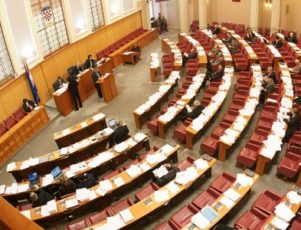
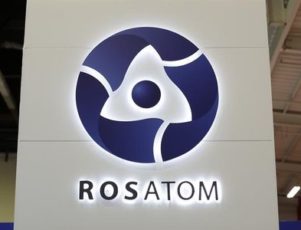
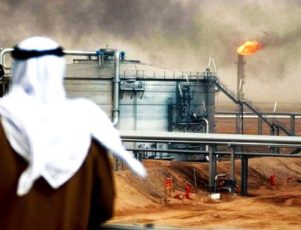
 Approximately half of the subsidies are for electricity, and the growth rate in consumption of electricity here is approaching 10%. In Kuwait for example, the price of electricity is fixed at less than $0.01 per kilowatt hour. According to energy think tanks such levels of subsidisation and consumption are absolutely unsustainable. However with electricity consumption divided almost equally among commercial and residential interests, there is stalwart resistance to reform these programs which cap prices and keep consumers happy.
Approximately half of the subsidies are for electricity, and the growth rate in consumption of electricity here is approaching 10%. In Kuwait for example, the price of electricity is fixed at less than $0.01 per kilowatt hour. According to energy think tanks such levels of subsidisation and consumption are absolutely unsustainable. However with electricity consumption divided almost equally among commercial and residential interests, there is stalwart resistance to reform these programs which cap prices and keep consumers happy.